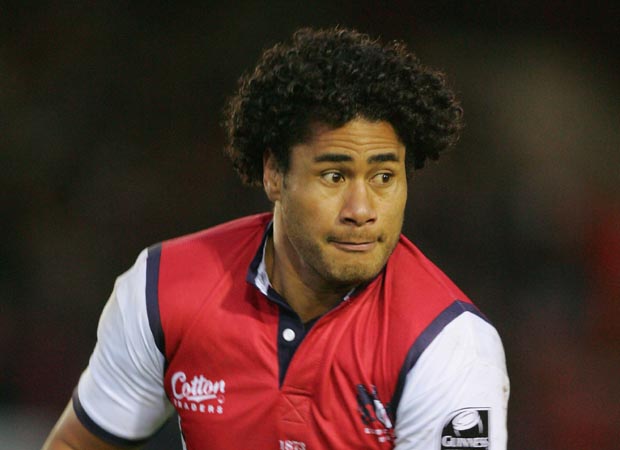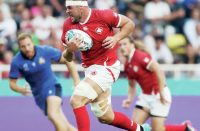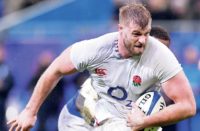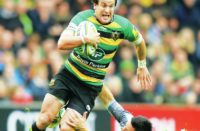 Terry FanoluaI’m currently back at my home from home, Gloucester, coaching in schools as part of the club’s community programme. It’s great to be able to give something back to the people of Gloucester who treated me as one of their own when I first arrived in 1997 as one of the first overseas players to play in the Premiership.
Terry FanoluaI’m currently back at my home from home, Gloucester, coaching in schools as part of the club’s community programme. It’s great to be able to give something back to the people of Gloucester who treated me as one of their own when I first arrived in 1997 as one of the first overseas players to play in the Premiership.
I knew very little about the place and I missed my family terribly as it was my first time away from home. I ended up sharing a place with Phil Vickery and Trevor Woodman and life was interesting living with those two! Vicks was certainly not as adventurous in the kitchen back then as he is now; all they used to eat was plain fried chicken and rice.
I felt very privileged to pull on the Cherry & White shirt over 200 times. Not wanting to let the fans down was my overriding emotion every time I ran out for Gloucester. Hearing them chant my name and seeing all the afro wigs in the crowd motivated me to give 120 per cent. Kings- holm is a special place to play, and not being able to run out in front of the Shed anymore is the thing I miss most now I’ve finally stopped playing.
I’m a terrible spectator and, as strange as it may sound, I rarely stay on to watch Gloucester games. After I’ve done the pre-match parade and guard of honour with the kids, I’ll sneak off home. Being there just makes me want to play.
It took time to settle but I enjoyed a good debut season, striking up a partnership with Richard Tombs in midfield. I scored a couple of hat-tricks en route to the Cheltenham & Gloucester Cup, which we won after beating Bedford in the final. Winning the Powergen Cup in 2003 was probably the highlight for me though. Seeing the smiles on the faces of our supporters is an image that’ll stay with me forever.
We had a great team spirit at Gloucester back then, it was always enjoyable going into work even if Chris Fortey and Mark Cornwell’s banter never changed from day to day. I think the fact we could all have a laugh together on and off the field played a big part in our success. Our ‘pod system’ in attack meant we scored a lot of tries too. Defences were not as well organised and most teams played ‘one-up’ rugby. But we constantly moved the point of attack, often using Henry Paul as a kind of quarter-back, away from the heavy traffic and it paid dividends most of the time.
I saw out my top flight career in France with Brive. My family and I enjoyed the lifestyle there but injuries limited my on-field contribution and I found that frustrating. Eventually, I dropped down the leagues and got my first taste of coaching at the Bugue Athletic Club in the Dordogne region. In my first season we won promotion to Federale 1.
From a coaching perspective, John Boe, my coach with Samoa, is the person I learnt most from. He kept training short, sharp and simple, and that’s something I’ve definitely taken on board.
I won 29 caps for my country and appeared in two World Cups. Beating Wales at the Millennium Stadium was clearly the highlight of the 1999 tournament while, four years later, the performance we put in against England was one I’m immensely proud of. It was all going to plan, with us 16-13 up at half-time, but, all credit to England, they came back at us and their experience told in the end. Vicks even came off the bench to score a try.
Shoulder and knee problems meant I hardly played for the next two years. I was in the squad for RWC 2007 but had to pull out due to shoulder surgery. Retiring is not something I’ve found easy and I managed one more season with Hartpury College on my return to the UK before the body said, enough is enough.























